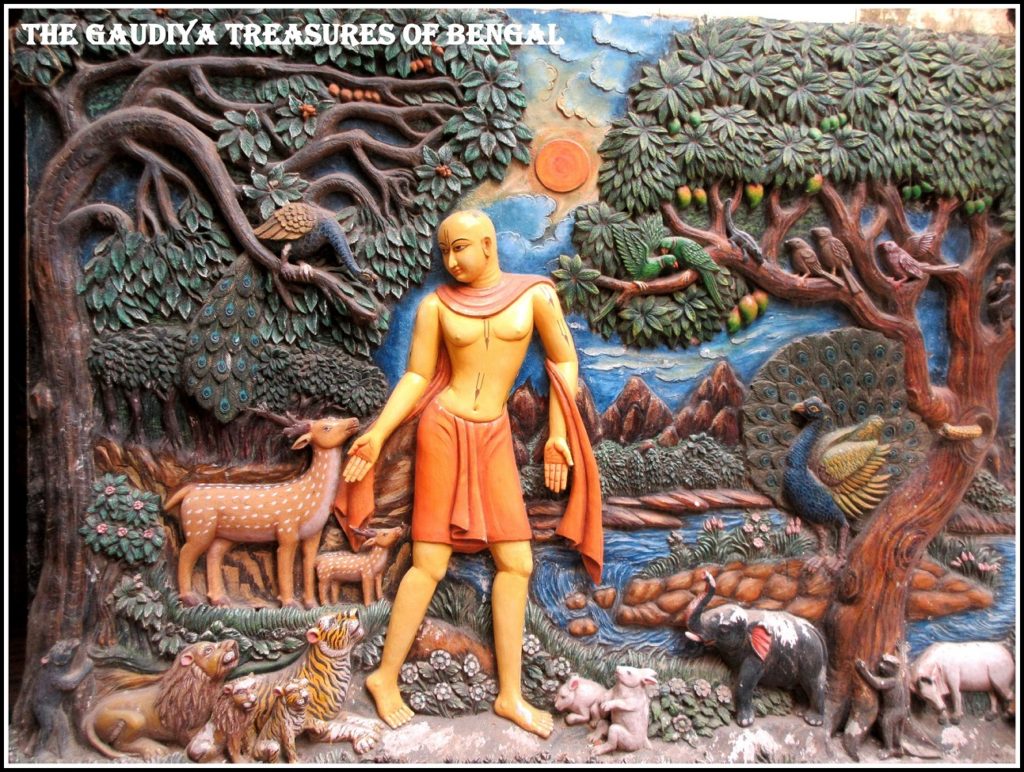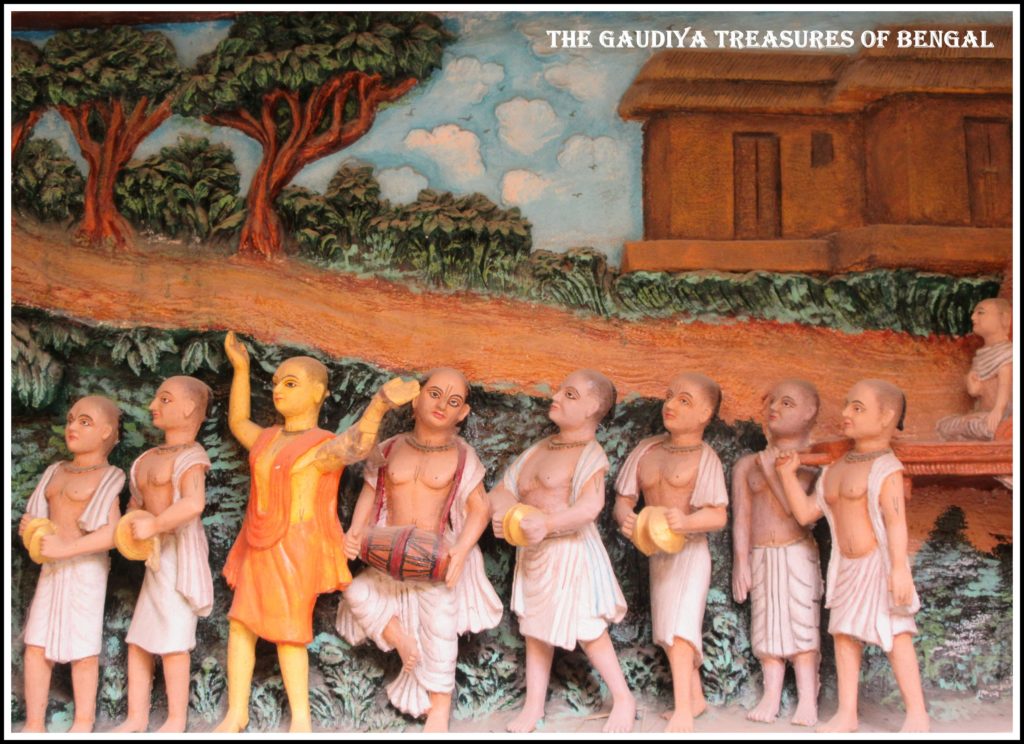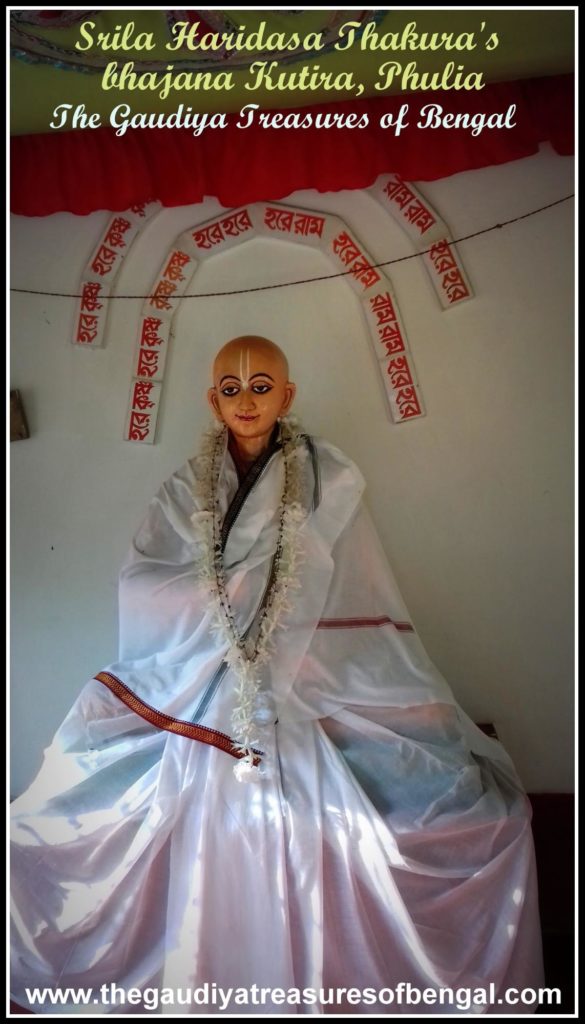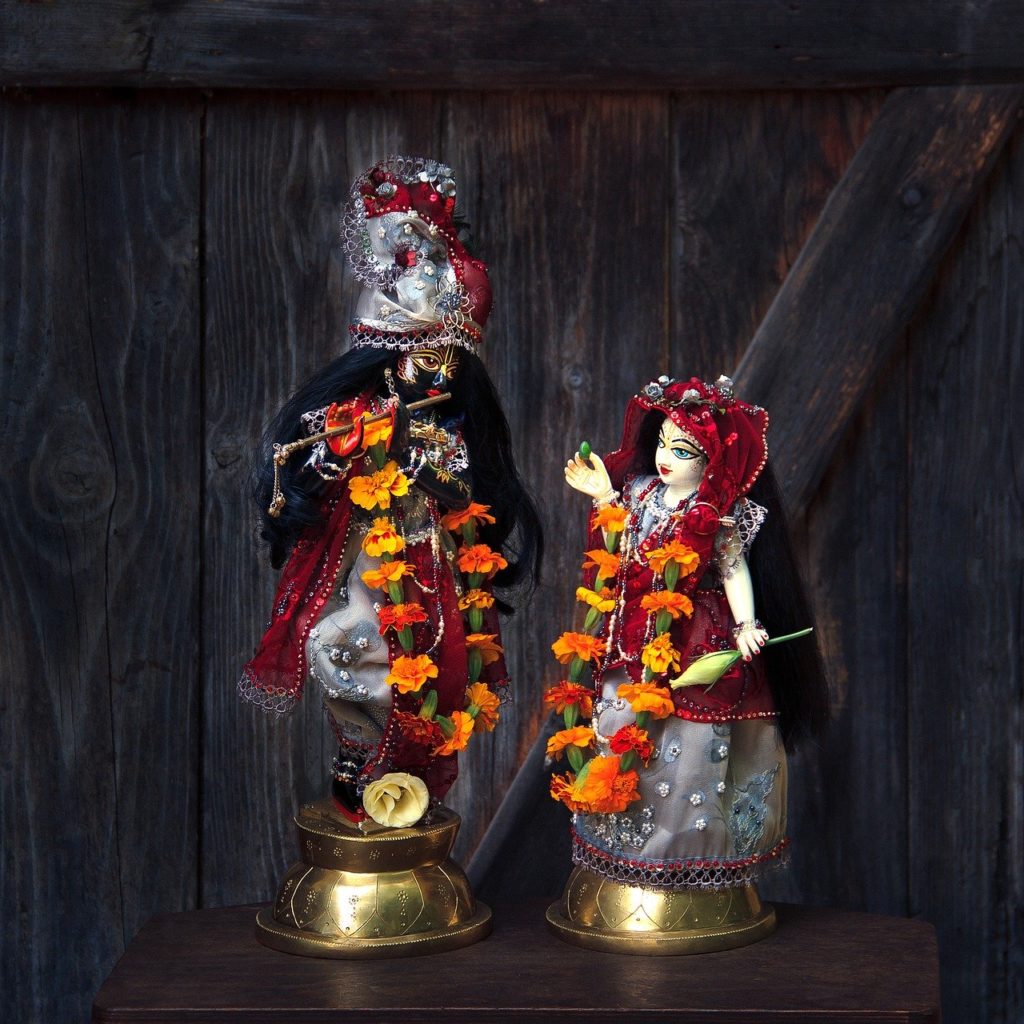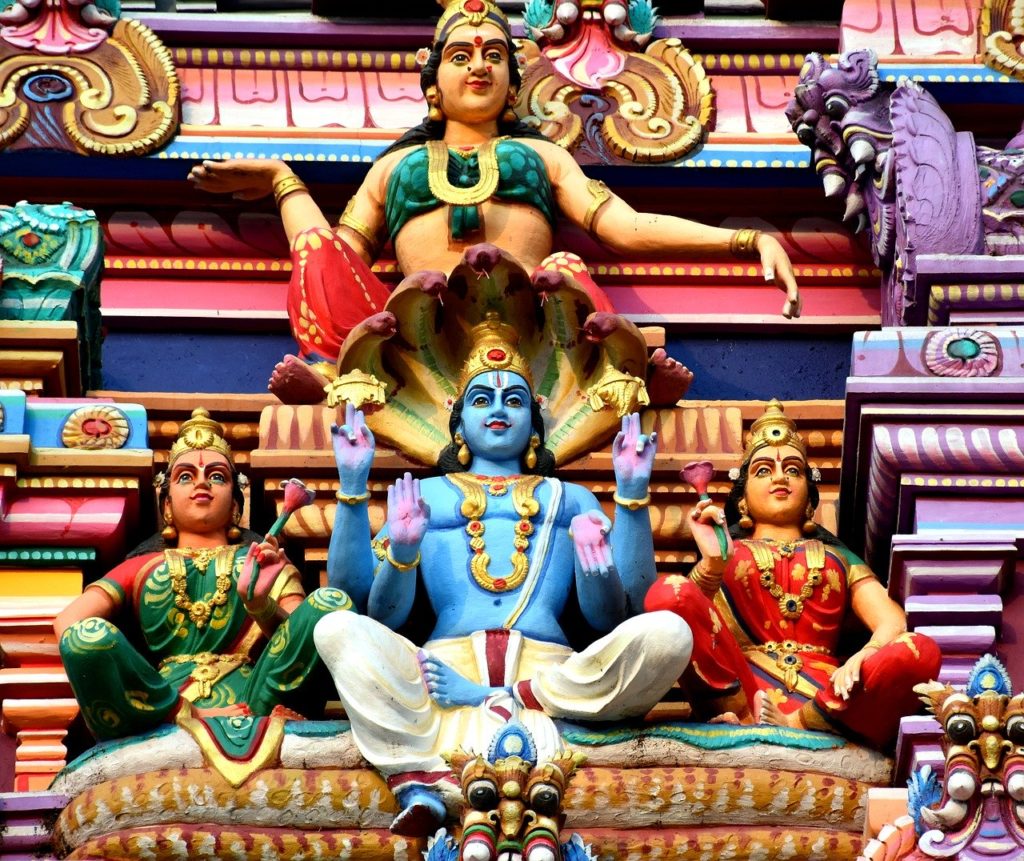
The meaning of the Hare Krishna Mahamantra is explained by Sri Gopal Guru Goswami, who was a disciple of Vakreswar Pandita, in the following way :
The transcendental name of Hari, much like fire that burns an object upon contact, has the power to eradicate or “burn up” all the sins of those who are caught up in materialistic pursuits. This divine name not only removes ignorance but also reveals the blissful form of the Lord. Hari, as a term, refers to an enchanting personality whose divine qualities captivate the minds of all beings in the universe. His youthful, beautiful form is so attractive that even the Cupids are mesmerized by it. The term “Hare” is the vocative form of Hari.
In addition to its other meanings, the term “Hare” can also refer to Hara or Srimati Radhika, the daughter of Vrishabhanu. She is known for stealing the mind of Hari during the rasa dance with her beautiful form and loving affection. The term “Hare” is the vocative form of Hara.
The term “Krishna” is derived from the root “Krs,” which means “all-attractive,” and “na,” which refers to “supreme bliss.” When combined, they form the word “Krishna,” which represents the all-attractive and supremely blissful Supreme Personality of Godhead, Sri Krishna. He is also known as Nandanandana and Sri Govinda, with lotus-like eyes and a dark blue complexion. For the Vrajavasis, Krishna is the sole source of bliss.
The term “Rama” implies “ramante,” meaning the embodiment of unlimited pleasure. Sri Krishna, who is highly skilled in loving affairs and is worshiped for His amorous pastimes, always takes pleasure in the company of Radha. This is why He is referred to as Rama (Radharamana Rama).
The supreme brahman is also recognized as ‘Rama’, as yogis find joy in contemplating His eternal, blissful form.
Hare Krishna Hare Krishna Krishna Krishna Hare Hare
Hare Rama Hare Rama Rama Rama Hare Hare
O Radha, please draw my mind towards you and release me from the material world.
O Krishna, please attract my mind to you.
O Radha, captivate my heart with your sweetness.
O Krishna, purify my mind by imparting the knowledge of how to worship you through your pure devotee.
O Krishna, grant me the firmness to appreciate your name, qualities, and pastimes.
O Krishna, may I develop a taste for serving you.
O Radha, make me eligible to serve you.
O Radha, teach me how I can serve you.
O Radha, let me hear about your intimate pastimes with your beloved.
O Rama (Krishna), let me hear about your intimate pastimes with your beloved.
O Radha, reveal your pastimes with your beloved to me.
O Rama, reveal your pastimes with your beloved to me.
O Rama, engage me in remembering your name, form, qualities, and pastimes.
O Rama, make me eligible to serve you.
O Radha, be pleased with me.
O Radha, be pleased with me.
Hare Krishna Mahamantra – further explained
#1 The holy name of Krishna is transcendentally blissful and bestows all spiritual benedictions for it is Krishna Himself, the reservoir of all pleasure. Krishna’s name is complete and is the form of all transcendental mellows. The holy name of Krishna is not material and is no less powerful than Krishna Himself. Krishna and Krishna’s names are identical and are hence free from any material laws or material qualities. Hence Krishna’s names are always liberated and spiritual. In this article we are going to discuss about the Hare Krishna Mahamantra, its Meaning, glories and significance.
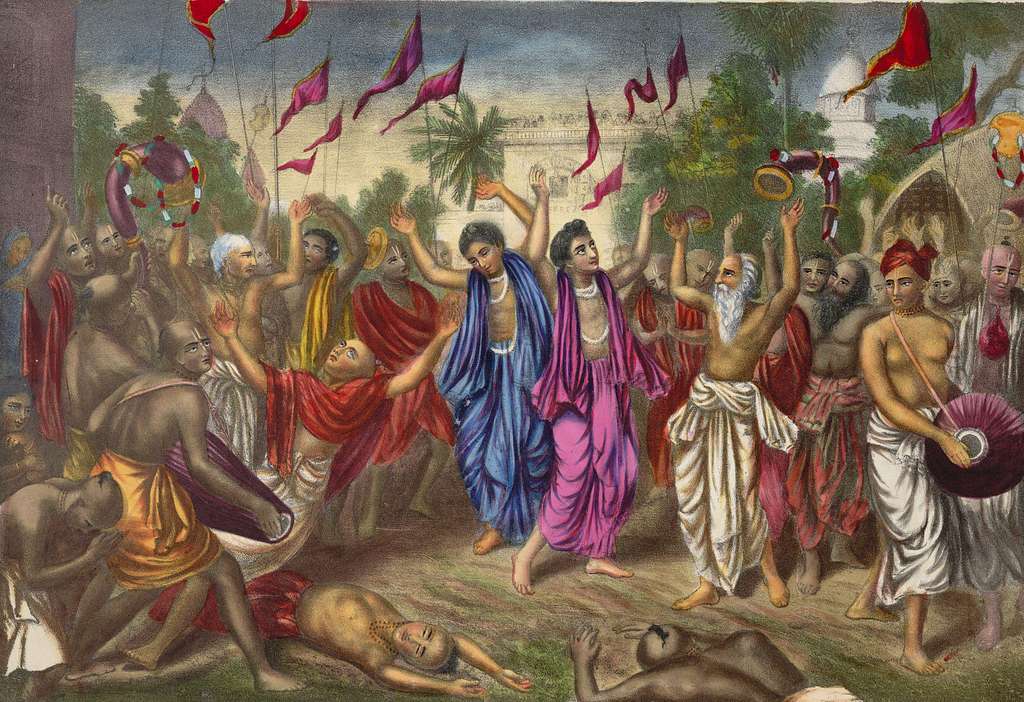 Derived from a Sanskrit root meaning to call, recite, praise, or glorify, kirtan is a deeply rooted spiritual practice that has been embraced by various cultures and religions throughout history. At its core, kirtan is the art of praising and glorifying a divine entity, embodying a profound expression of devotion and reverence. While there are numerous ways to convey this glorification, such as poetry, drama, dance, or recitation, kirtan, in its most recognized form, takes shape as a melodic call and response singing of mantras. These mantras typically focus on revered Hindu deities like Radha, Krishna, Sita, and Rama, who hold significant spiritual significance. Kirtan goes beyond mere musical performance; it serves as a potent means of meditation, enabling individuals to tap into their inner beauty and establish a profound connection with the Supreme Spirit. By engaging in kirtan, practitioners channel their emotions, intentions, and devotion through the harmonious blending of their voices, accompanied by traditional Indian instruments such as the mrdanga (a drum) and kartalas (hand cymbals). This synergy of sound and rhythm creates an immersive experience, cultivating a sense of unity and transcendence among participants. The power of kirtan lies in its ability to uplift and transport individuals beyond the boundaries of the material world, allowing them to delve deep into their spiritual essence. Through the repetition of sacred mantras and the collective energy generated by the participants, kirtan creates a vibrant and transformative environment that awakens the soul and nourishes the heart.
Derived from a Sanskrit root meaning to call, recite, praise, or glorify, kirtan is a deeply rooted spiritual practice that has been embraced by various cultures and religions throughout history. At its core, kirtan is the art of praising and glorifying a divine entity, embodying a profound expression of devotion and reverence. While there are numerous ways to convey this glorification, such as poetry, drama, dance, or recitation, kirtan, in its most recognized form, takes shape as a melodic call and response singing of mantras. These mantras typically focus on revered Hindu deities like Radha, Krishna, Sita, and Rama, who hold significant spiritual significance. Kirtan goes beyond mere musical performance; it serves as a potent means of meditation, enabling individuals to tap into their inner beauty and establish a profound connection with the Supreme Spirit. By engaging in kirtan, practitioners channel their emotions, intentions, and devotion through the harmonious blending of their voices, accompanied by traditional Indian instruments such as the mrdanga (a drum) and kartalas (hand cymbals). This synergy of sound and rhythm creates an immersive experience, cultivating a sense of unity and transcendence among participants. The power of kirtan lies in its ability to uplift and transport individuals beyond the boundaries of the material world, allowing them to delve deep into their spiritual essence. Through the repetition of sacred mantras and the collective energy generated by the participants, kirtan creates a vibrant and transformative environment that awakens the soul and nourishes the heart.



